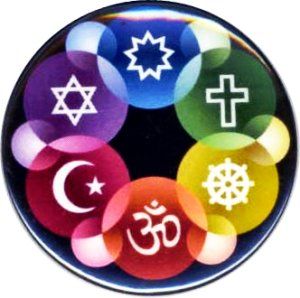
Justin didn't like the Christmas sermon this year, especially all that bunk about the incarnation being the resurrection and vice versa. It sounded like something he'd say just to sound intelligent but he didn't understand what it meant.

I know Kristen (and her husband Bryan Nurnberger) from SimplySmiles.org, working together down in Oaxaca, Mexico on mission trips. I hope you enjoy her soulful rendition of this Christmas classic.


“How nice. What a heart-warming story. [It’s] 2009 and people still believe this...fable of Jesus being the son of God—as Pope Leo himself said "This fable of Christ has been quite profitable for us (The Vatican)”. The Virgin birth, the Immaculate Conception, an annunciation from an angel, and the "miracles": CT Valley Hospital is full of Jesus Christs. You want to do something for these folks—the Reverends should be opening their wallets and [giving] them some financial relief. The Catholic Church will pass the basket three times during holiday masses to receive. Get real, people. No matter the denomination, Christians are like cattle: they will follow a stalk of oats over a cliff. Merry Christmas.”I paused and wondered what wound this person had suffered to provoke such a reaction to this service. It seemed to me that this individual had witnessed firsthand the inevitable pain that comes with being human and how a relationship with God can sometimes feel inadequate to that pain, so much so as to drive this person away from God and from the church. I too have had periods of sadness and loss throughout the years that have caused me to question God’s presence in my life and in the life of this world, thus deepening my sadness and feelings of isolation.


"...I know I cannot survive without some kind of certainty. To live, I need some stable ground to live on, a soil from which I can sustain my life, a place where I can pitch my tent, a landing where I can make friends.Right now I would describe myself as a Buddhist Agnostic Goddess 12-step Christian. Those are the five traditions so far that have informed my sense of the dual mystery of love and life but it is the Christian story that first captured my heart and made a claim upon my life and still does. If we are true to our faith and to God, one religion or worldview cannot possibly capture the essence of this mystery we call God. We must learn to be open to the other, as Selmanovic puts it, if peace is ever to come on earth.
"...To create a new empty space within, I decided to let some uncertainty enter my life, and I wish I could say the experience has been wonderful. It hasn't. It feels like stepping on a makeshift bridge, suspended, with firm ground left behind and no assurances of what I might find beyond the thick fog in the front. Questioning my own certainties has been a lonely, painful experience. Uncertainty hurts. Yet it is uncertainty that has been saving my life. Doubt would carry me. When I allowed more questions to serve as vessels of my faith, life could win. And expand. I could grow deeper, where fresh, strong new currents of faith could be found."









"The act of tattooing one's skin was a transformative declaration of power, an announcement to the world: I am in control of my own flesh. The intoxicating feeling of control derived from physical transformation had addicted millions to flesh-altering practices...cosmetic surgery, body piercing, bodybuilding, and steroids...even bulimia and transgendering (emphasis added)."

